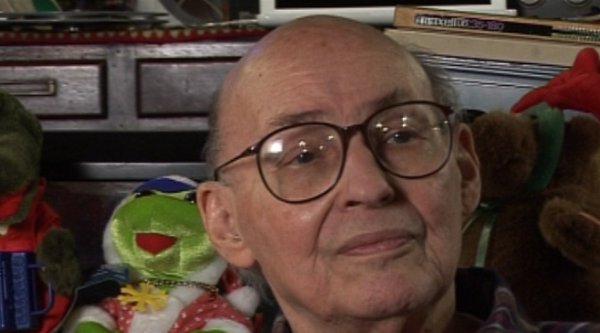NEXT STORY

Claude Shannon's world changing publication
RELATED STORIES

NEXT STORY

Claude Shannon's world changing publication
RELATED STORIES


|
Views | Duration | |
|---|---|---|---|
| 121. The problem with perceptrons | 1485 | 02:08 | |
| 122. Embarrassing mistakes in perceptron research | 1613 | 02:47 | |
| 123. Why we should publish failures in AI research | 1249 | 01:09 | |
| 124. Claude Shannon's world changing publication | 1 | 1525 | 01:37 |
| 125. Why I got on so well with Claude Shannon | 1724 | 02:09 | |
| 126. Making a ball bearing weapon | 1238 | 03:27 | |
| 127. Making the most useless machine | 8549 | 01:11 | |
| 128. A short history of chess playing machines | 1525 | 03:23 | |
| 129. Did the chess playing machines have an impact? | 1259 | 01:34 | |
| 130. The influence of Nicholas Rashevsky's mathematical biophysics | 1216 | 01:41 |


One problem with my field is that people publish experiments where the machine does succeed in learn… apparently learning something – maybe really learning, perhaps – but they don’t publish failures when they say: 'Well, we tried to get this machine to distinguish between cats and dogs and we had 4,000 pictures and it didn’t do much better than chance.' We never see papers published, or hardly ever. And so, there’s something a little bit wrong. In physics, you win a Nobel Prize if you can show that some old theory isn’t quite right. In artificial intelligence, you might lose the company that’s paying for your research if you publish a failure. And so that’s another reason why we need more institutions that are not based on quick payoffs.
Marvin Minsky (1927-2016) was one of the pioneers of the field of Artificial Intelligence, founding the MIT AI lab in 1970. He also made many contributions to the fields of mathematics, cognitive psychology, robotics, optics and computational linguistics. Since the 1950s, he had been attempting to define and explain human cognition, the ideas of which can be found in his two books, The Emotion Machine and The Society of Mind. His many inventions include the first confocal scanning microscope, the first neural network simulator (SNARC) and the first LOGO 'turtle'.
Title: Why we should publish failures in AI research
Listeners: Christopher Sykes
Christopher Sykes is a London-based television producer and director who has made a number of documentary films for BBC TV, Channel 4 and PBS.
Tags: Nobel prize
Duration: 1 minute, 10 seconds
Date story recorded: 29-31 Jan 2011
Date story went live: 13 May 2011